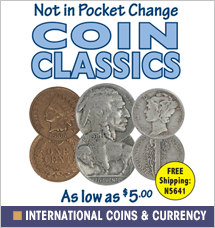
I had the privilege of knowing the most distinguished economist of the 20th century, a scholar who early on spotted dangers in Social Security as well as other problems seniors face today.
Friedman predicted as early as 1957 that Social Security depressed people’s savings because they would believe that Social Security would take care of them in old age.
Virtually all surveys have concluded that American seniors do not have anywhere near enough saved for retirement, according to the Employee Benefit Research Institute’s annual Retirement Confidence Survey.
We recently commemorated the 100th anniversary of that brilliant Nobel Prize-winning economist Milton Friedman, who died in 2002. I got to know him in the late 1970s when I headed an organization in Washington. Friedman was small in stature but enormous mentally. The bespectacled economist stood about the height of my shoulder and seemed to wear a cheery smile much of the time we discussed matters of the time.
With race being a central and sometimes explosive matter now in this age of Obama, the president could learn some important facts from Friedman’s teachings. In his book, Capitalism and Freedom, he wrote “It is a striking and historical fact that the development of capitalism has been accompanied by a major reduction in the extent to which particular religious, racial and social groups have…as the saying goes been discriminated against…The maintenance of the general rules of private property and of capitalism have been a major source of opportunity for Negroes and have permitted them to make greater progress than they otherwise could have made.”
The country could learn at least as much from Friedman’s economic principles. As he once pictured spending policies: “If you put the federal government in charge of the Sahara Desert, in five years, there’d be a shortage of sand.”
Friedman also said: “We have a system that increasingly taxes work and subsidizes non-work. Such has been exacerbated manifold in recent years.”
When I knew Friedman, in the 1970s, he told me enthusiastically about the television series that was going to run based on his book Free to Choose. He told me “It’s more nuts and bolts, less theoretical than Capitalism and Freedom, his earlier classic book, which sold more than 500,000 copies and was translated into 18 languages.
In our friendship, Friedman described to me that his books provided “subject matter for bull sessions.” He suggested that’s where one can consider the many arguments. Then, let them simmer and eventually turn your preferences into convictions.”
He seemed to have the ability to see the future when he said: “Many people want the government to protect the consumer. A much more urgent problem is to protect the consumer from the government.” And, regarding other problems that the country faces today, such as massive unemployment, Friedman foresaw that the Great Depression, like most other periods of severe unemployment was produced by government mismanagement rather than by any inherent instability of the private economy.
In Capitalism and Freedom Friedman raises the quintessential question: How can we benefit from the promise of government while avoiding the threat to freedom? He answers, “First the scope of government must be limited. Its major function must be to protect our freedom from enemies outside our gates and from our fellow citizens, to preserve law and order…”
“The preservation of freedom is the protecting reason for limiting and decentralizing governmental power, but then Friedman goes on to explain: “Newton and Leibbitz; Einstein and Bohr; Shakespeare, Milton, and Pasternak; Whitney, McCormick, Edison, and Ford; Jane Addams, Florence Nightingale, and Albert Schweitzer; none of these opened new frontiers in human knowledge and understanding, in literature, in technological possibilities, or in the relief of human misery in response to governmental directives.”
In the footprints of the Administration’s stimulus package to create jobs, the president would be wise to follow advice from Capitalism and Freedom where Friedman writes: Ever since the New Deal, a primary excuse for the expansion of government activity at the federal level has been the supposed necessity for government spending to eliminate unemployment. The theory that government can solve unemployment has been thoroughly discredited,” wrote Friedman.
As for the policy to “spread the wealth,” Friedman gave me this example: “Suppose you and three friends are walking down the street, and you spy a $20 bill on the pavement. You could divide it with them. But you may choose not to. Would the others be justified to compel you to share the $20 with them?”
Are we prepared to urge any person whose wealth exceeds the average of others, to share his wealth? Friedman didn’t think so — like many young and old today who don’t believe a person, just because he has money, should be forced to share it aimlessly with others.
Tait Trussell is an old guy and fourth-generation professional journalist who writes extensively about aging issues among a myriad of diverse topics.




























































